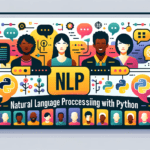In a recent analysis, the International Monetary Fund (IMF) delves into the anticipated impact of artificial intelligence (AI), revealing that nearly 40% of all jobs are at risk. This revelation is accompanied by warnings from IMF Managing Director Kristalina Georgieva, emphasizing the need for proactive policymaking to mitigate the potential exacerbation of global inequality.
The Global Outlook:
As AI rapidly advances, the IMF foresees a significant impact on jobs, particularly in advanced economies where approximately 60% of positions may be affected. While some workers stand to benefit from increased productivity through AI integration, others face the prospect of displacement as AI assumes tasks traditionally performed by humans. This dynamic prompts a crucial examination of the intersection between technological progress and its societal ramifications.
Regional Disparities:
The IMF’s analysis also sheds light on regional variations in the impact of AI. Low-income countries are expected to be less affected, with only 26% of jobs projected to feel the influence of AI. However, Kristalina Georgieva underscores a pertinent concern: these nations may lack the essential infrastructure and a skilled workforce necessary to harness the benefits of AI fully. This discrepancy raises the specter of a widening global inequality gap, prompting the need for a nuanced and inclusive approach to AI deployment.
Inequality Concerns:
A critical aspect of the IMF’s analysis revolves around the potential for growing wage disparities. Higher-income and younger workers are poised to experience disproportionate increases in earnings following AI adoption. Conversely, lower-income and older workers may grapple with challenges and fall behind in this tech-driven transformation. To address this, Georgieva advocates for the establishment of comprehensive social safety nets and the implementation of retraining programs to support vulnerable workers during this period of technological evolution.
Global Developments:
The IMF’s insights coincide with ongoing discussions on AI regulation at the prestigious World Economic Forum in Davos, Switzerland. The proliferation of AI applications, exemplified by the popularity of tools like ChatGPT, has prompted heightened scrutiny and calls for regulatory measures globally. Notably, the European Union recently reached a provisional deal on comprehensive AI laws, aligning with similar initiatives in China and the United States. These developments underscore the urgency of creating a robust regulatory framework that balances technological innovation with ethical considerations.
Last Words:
As the trajectory of AI continues to reshape the job market, the IMF’s cautionary insights serve as a clarion call for coordinated global action. Policymakers, business leaders, and governments must collaboratively navigate the challenges posed by AI, focusing on creating social safety nets and retraining programs to mitigate adverse effects on vulnerable populations. The ongoing dialogue on AI regulation remains pivotal, offering a pathway to strike a delicate balance between technological progress and social inclusivity on a global scale.




